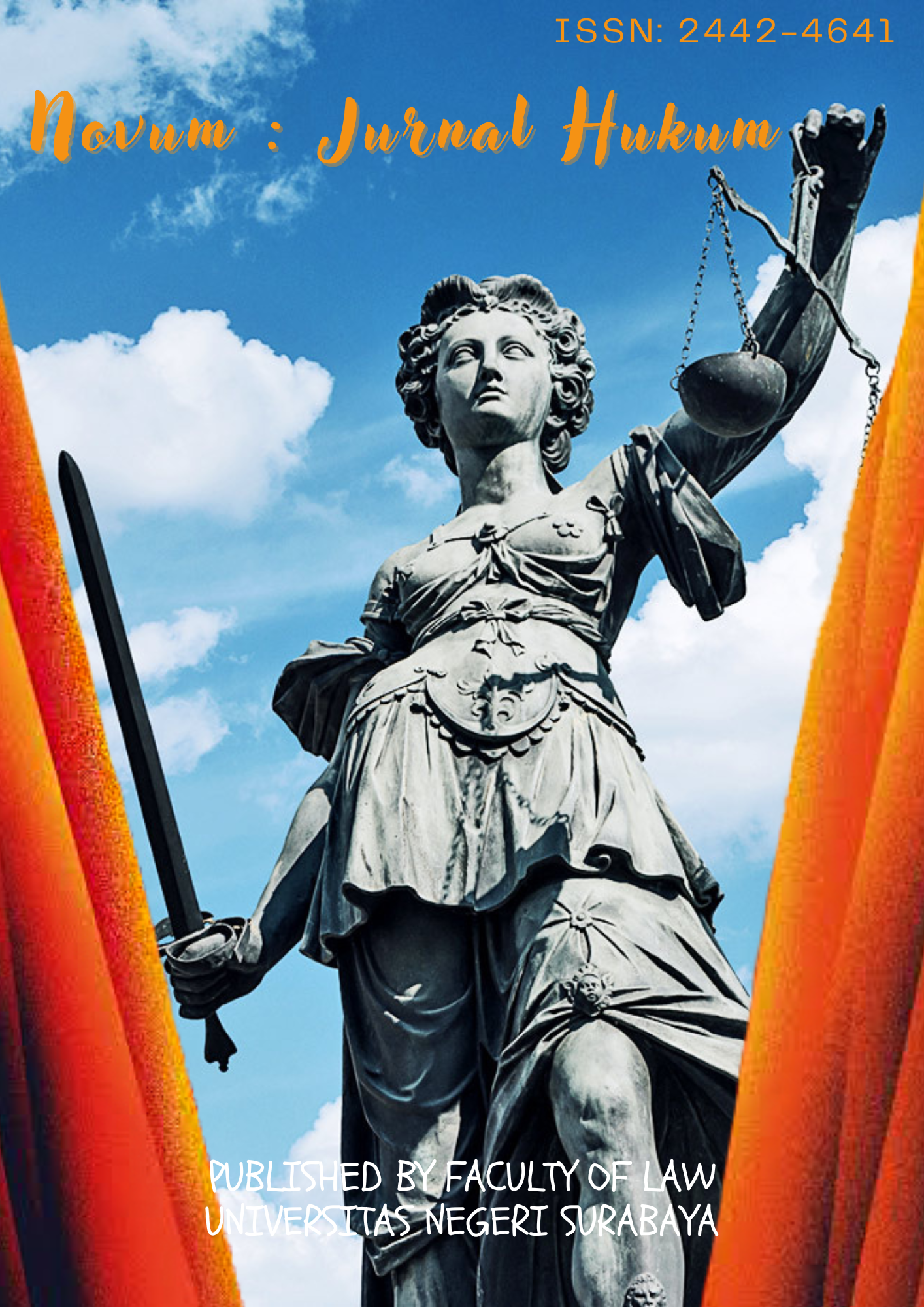Legal Protection for Remote Workers Regarding Working Hours and the Provision of Welfare Facilities Based on Labor Law in Indonesia
DOI:
https://doi.org/10.2674/novum.v11i02.64302Abstract
The development of technology and communication, more and more companies in Indonesia are starting to adopt remote working. There is no clear regulation of remote working in the Manpower Law Number 13 of 2003 or the Job Creation Law Number 11 of 2020. This research will discuss the regulation and legal protection for remote workers or remote working related to working hours, as well as welfare facilities based on labor law in Indonesia. Researchers use normative legal research as well as a statue approach and conceptual approach. The application of remote working systems can currently be based on the rules of labor law in Indonesia regarding working time, which has been determined in Government Regulation No. 35 of 2021 and Government Regulation No. 36 of 2021. However, The Employment Law has yet to further regulate the implementation and existence of remote working, which has not been fully defined under Indonesian Employment Law.
Downloads
Downloads
Published
Issue
Section
License
Copyright (c) 2024 Farhan Muhadi, Irfa Ronaboyd

This work is licensed under a Creative Commons Attribution-NonCommercial-ShareAlike 4.0 International License.
 Abstract views: 168
,
Abstract views: 168
, PDF Downloads: 11
PDF Downloads: 11



